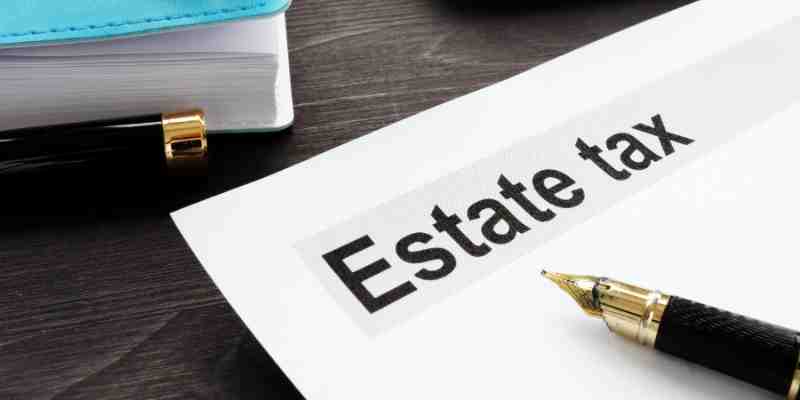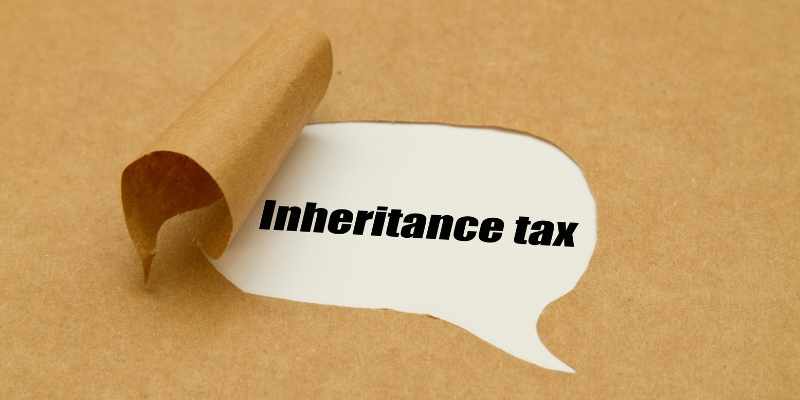The Basics of Estate Tax
The inheritance tax, generally known as the "death tax," is a charge applied to the possessions of the departed. Therefore, even if you are eligible for the government inheritance taxes exemption, you can still owe a state-level tax. Below are further details on the states that impose this fee. You may learn further about estate tax from this article. Look down.
What is an Estate Tax?
A fee on your ability to transmit properties after your death is known as an estate tax. It considers whatever you owned or had a legal claim to at the time of your death. This kind of tax may be levied at the provincial, federal, or both levels of government. The government gives the right to leave property to existing heirs after your demise.

The majority of very straightforward estates—those with cash, publically quoted shares, small quantities of other visibly valuable assets, no special reductions, elections, or collectively held possessions- do not need to file an estate tax claim. A filing is necessary if the overall estate (your "Gross Estate" is the sum of all your possessions). The worth of the deceased's includible property (which may include cash and equities, real estate, health coverage, trusts, retirement plans, business interests, and numerous different assets) is greater than the lodgement threshold for the period in which the decedent's passing after adjustment for the decedent's altered taxable presents and precise gift tax deferment.
Working on Estate Tax
- Before any possessions are given to successors, the estate tax is calculated depending on the estate worth of the deceased on the day of death. The simplest way to calculate it is as follows:
- To calculate your net properties, add the fair market worth of most of your possessions, such as cash, equities, real estate, health coverage, charities, annuities, and business holdings. Remember that the assets' fair market worth could not be comparable to what you paid to purchase them or what they were worth when you bought them.
- Subtract the goods that are exempt from estate taxes from the permitted deductions. Home loans and other debts, burial costs, estate management costs, assets that transfer to a surviving spouse, maintenance for a dependent child, charitable donations and bequests, and state estate taxes are a few examples. Your taxable estate is what makes a difference.
- Commencing with donations made in 1977, including the value of lifelong taxable presents in your chargeable estate.
- Take the exemption out. Your estate taxation base, or the value used to determine estate tax, is the outcome. Within nine months of the deceased's date of demise, the estate must submit Form 706, which reports estate tax.
Who in the United States pays the government estate tax?
Since 1934, an average of 1.6% of US adults who passed away owed estate taxes. However, the most reliable data from the IRS shows that the annual proportion decreased to roughly 0.2% starting in 2011.
The surge in exemptions amounts over the previous 20 years is primarily to blame for the decline. For instance, in the early 2000s, estates worth $1 million were taxed, compared to $12.06 million today.
Pros and cons of Estate Tax
Benefits
- The estate tax encourages frugality. It ensures that wealthier people who want to leave their descendants as much fortune as they can try to save extra.
- The estate tax is crucial in preventing the accumulation of assets in a small number of individuals.
- The wealthiest 1% of people are subject to the estate tax. It is undoubtedly one of the best illustrations of a progressive income tax that disproportionately affects the wealthiest people.
- A lot of wealthy people use charitable giving to lower their estate taxes. Donations to charities might not have continued if there had been no estate tax.
- The estate tax ensures that people don't leave vast wealth to others who didn't contribute to its creation. The beneficiaries would have received a larger inheritance if there had been no estate tax.
- Large quantities of inherited riches may occasionally result in beneficiaries becoming lazy and contributing nothing to society.
Drawbacks
- Critics of the estate tax refer to it as a death tax. They contend that it penalizes someone for attaining success.
- One of the significant drawbacks of the estate tax is that it forces people to pay taxes on identical assets twice. They incur additional costs as soon as they are purchased and again when they are carried on.
- People subject to the tax might well be required to seek professional advice and dispute the worth of assets would include in their estate.
What exactly is Inheritance tax?

Although numerous states have inheritance taxes, the federal authority does not. State governments enforce inheritance taxes levied on specific bequests rather than the estate's overall value. It is mandated by the jurisdiction where the deceased resided or where they had property.
Six states: Iowa, Kentucky, Nebraska, New Jersey, Pennsylvania, and Maryland levy an inheritance tax. Additionally, Maryland levies a state estate tax.
What distinguishes an estate tax from an inheritance tax?
An inheritance tax, distinct from an estate tax, is imposed in a few states. Descendants of inheritors typically pay inheritance taxes after acquiring the inherited assets. Conversely, an estate tax is a charge placed on the whole taxable estate. Form 706 is used by estate executors to calculate the debt.
The heir's connection to the decedent influences inheritance tax rates frequently. State inheritance taxes are typically waived for a surviving spouse. Some states impose a low taxation rate on the deceased's children. The higher inheritance tax rates are typically applied to more distant relatives or beneficiaries unrelated to the dead.
Methods for lowering or evading the federal estate tax
There are specific strategies you may employ to safeguard your assets if you wish to lower your overall estate taxes before you pass away. They consist of the following:
• Transferring your assets. Property left to an eligible charity qualifies for a deduction from the taxable estate.
• Safeguarding your property with a trust. Irrevocable trusts set up correctly may allow you to lawfully hide some of your possessions from state and federal estate taxes.
• Using up your resources. Enjoy your prosperity if you're not worried about running out of money before you pass away.
• Changing to a better tax environment. You have several possibilities for moving because most states don't impose an estate or inheritance tax.
• Dispersing your resources. While alive, you could leave some of your estates as presents to close friends and family. A lot of states do not tax gifts. (Research the gift tax's operation.)
Final thoughts
It's vital to speak with an estate management expert to determine the best method to minimize the financial impact, whether you believe you might be in a position at the time of your death when you would be required to pay. But there are other options if you choose not to pay state taxes.


